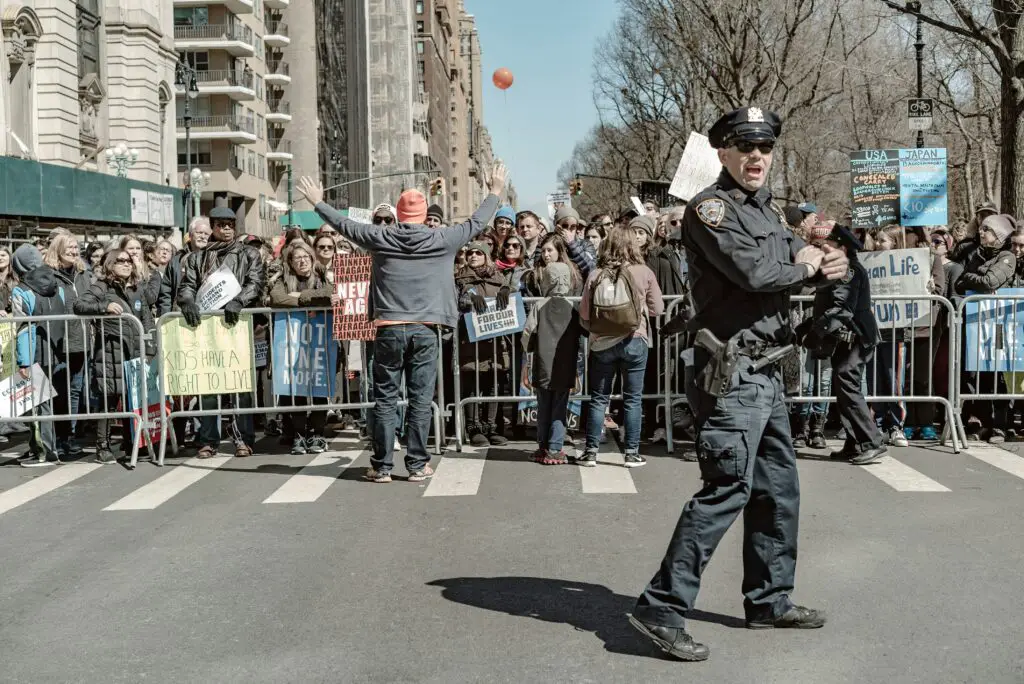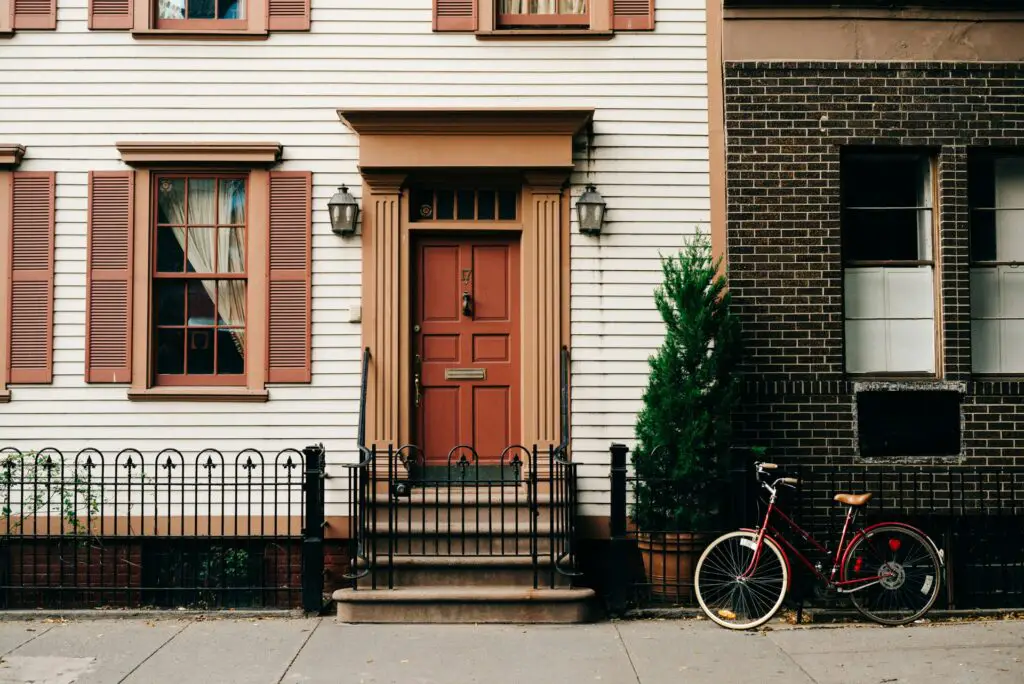In this live doorbell camera footage, a woman had to watch police negligence in action as her local officers began to change her locks. The only strange thing was that she was never supposed to get evicted in the first place.
The doorbell camera shows multiple officers standing near and fiddling with her lock. After asking them, “What are you doing?” the police respond, “We’re here to finalize the eviction.” Rightfully confused, the woman and the officers continue to talk. The officers assert that they posted a notice on her house a week ago. They ask her name, to which she replies. Upon hearing her name, one officer seemingly walks to the front of the house to re-check the address.
After a shortcut, one officer stands again at the doorbell, only this time he has changed his tune. He apologizes, now stating that they had gone to the wrong house. Authorities ordered the police to evict one of her next-door neighbors.
Despite not being shown in this clip, the police made proper reparations for the damages they caused. They fixed the woman’s lock, bought her lunch, and sent her gift cards as an apology. Despite the amicable ending, would the woman have been able to seek justice if the police had not righted their wrong?
Police Negligence

Police officers, regardless of their position, are not above the law. They must uphold the law safely and fairly. However, they occasionally make mistakes or get caught up in the action. In mild cases, they may arrive at the wrong house. In more serious cases of negligence, it can result in extreme injury or even death.
To sue a police officer or police department, you must be able to prove that negligence was at play. Under the public duty doctrine, this can sometimes be a difficult thing to do. The doctrine prevents excessive lawsuits against police. It defines a police officer’s duty as owed to everyone, not individuals. Therefore, to bypass the public duty doctrine, you must demonstrate that an officer specifically owed you a duty of care.
In most cases, police negligence takes the form of brutality and wrongful arrests. These types of police negligence can trigger a lot of legal implications. For instance, racial profiling, excessive force, and false arrests under the Fourth Amendment are all common points of prosecution.
Does Insurance Cover Police Damages?
The somewhat difficult requirements for suing the police might make you consider other ways to cover damages. Many people turn to their renters or home insurance for help when lawsuits don’t work out.
As you can probably guess, police activity can easily cause property damage. On the road alone, police chase and high-speed pursuits cause much civilian vehicle damage. Likewise, when searching your home, police may be able to lawfully break their way in, which often damages doors, fences, and other barriers.
Numerous parties can be held liable depending on the circumstances surrounding the damage. Of course, if you caused a false alarm or were breaking the law, you would be solely responsible. They would be accountable if a third party somehow caused or created a situation that led to the damages. If the police used malpractice or were negligent, they can be held responsible.
Generally, insurance should be one of your last options regarding police damage reparations. Some policies may cover police damages but usually have a long list of requirements. For instance, most renter’s policies don’t cover lawful search damages, making filing a claim difficult.
What Should You Do If You’re In This Situation

It is important to stay calm if you ever find yourself in a situation like this. Keeping open communication with the police is the best way to sort out any confusion. Getting aggressive can easily lead to larger and possibly more violent disputes.
If the police don’t correct their mistake, there are a few main things you can do. Firstly, you may want to file a formal complaint with the department. This can help to officially notify them of their wrongdoings and get your statement on record.
You may also want to file a suit for negligence if the damages are serious. As discussed before, there are often specific requirements that accompany these suits. To determine if you have a case against the police, seek the guidance of a legal professional.
Are The Police Responsible In This Case?
In this case, the police initially acted under legal authority because a judge had ordered the eviction process. However, they unlawfully performed this action at the wrong house without authorization.
This oversight falls directly on the police involved. Their negligence ultimately led them to the wrong house. Misreading the address is a reasonable oversight that careful and diligent handling can resolve. Thus, it was unreasonable for them to be at the woman’s house, making them liable.
Police departments often issue an apology and compensation after such situations. For example, the police in this video later fixed the locks and gave the woman monetary reparations in food and gift cards. Actions like this can help de-escalate a situation and prevent the police from receiving a lawsuit.

